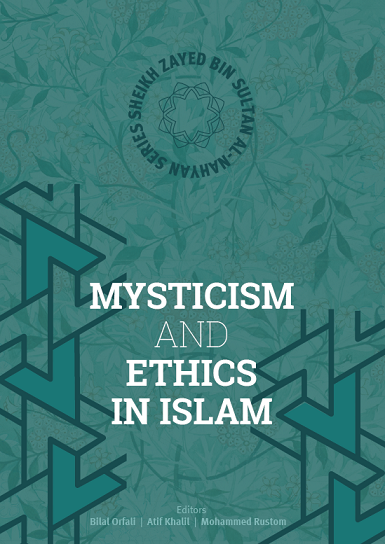
The inextricable link between Sufism and ethics in Islam is well-known . Yet, despite the strong relationship between the two fields, scholarship connecting both remained largely untilled land—until now .
Mysticism and Ethics in Islam (published by AUB press) presents an exciting collection o articles by leading scholars. The volume is the first of the Sheikh Zayed Bin Sultan Al-Nahyan Series, and seeks to offer insights into some of the most salient facets of the Sufi tradition. Broken down into four time periods (early, classical, late pre-modern and modern/contemporary), the contributions analyze articulations of Islamic mysticism spanning Egypt, India, West Africa, Iran, Turkey, Russia, Central Asia, and China.
While there exists a good amount of scholarship dealing with the influence of Greek ethics on classical Islamic thought, past studies have failed to account for the mysticism and ethics nexus. The results have “perpetuated a misunderstanding which has characterized scholarship for far too long,” notes co-editor Mohammed Rustom. “That is, the facile notion that Islamic civilization’s ethical achievements are to be measured against the ethical achievements of the ancient Greeks.”
It is both these misunderstandings and the dearth in studies that motivated Bilal Orfali, Radwan Sayyid and Mohammed Rustom to organize a conference from May 2nd to 3rd, 2019, at the American University of Beirut, entitled Mysticism and Ethics. The event honored the centennial of the birth of the late Sheikh Zayed bin Sultan Al Nahyan, the founder of the United Arab Emirates, and a man known for his outstanding moral values.
Lina Jammal contributed to the conference with a paper on al-Khargushi, the first mystic known to write a book on dream interpretations. “The conference’s collaborative approach personally strengthened my research, especially thanks to the lively Q&A session that followed each presentation.”
Sixteen of the collection’s twenty-five contributions, including Jammal’s, derive from papers delivered at the conference, while the remaining nine represent later contributions. Atif Khalil joined Bilal Orfali and Mohammed Rustom as a co-editor of the volume.
While the articles transcend national and historical boundaries of Sufi thought, scholars from disciplines outside of Islamic Studies can benefit from the historical methods, textual analysis, comparative inquiries, thematical discussion and methodological explorations found in the volume.
Inspired by the conference and volume’s exploratory (not prescriptive) goal, Chafika Ouail presented a multidisciplinary approach based on philosophy, language and theology. Her paper, entitled “The Paradigm to Reconstructing Sufi Ethics,” explored new possibilities for rethinking about ethics from within the Sufi tradition.
“This volume tries to raise new questions and forge new pathways. It is exciting to feel that we are building a new road,” Ouail said.

